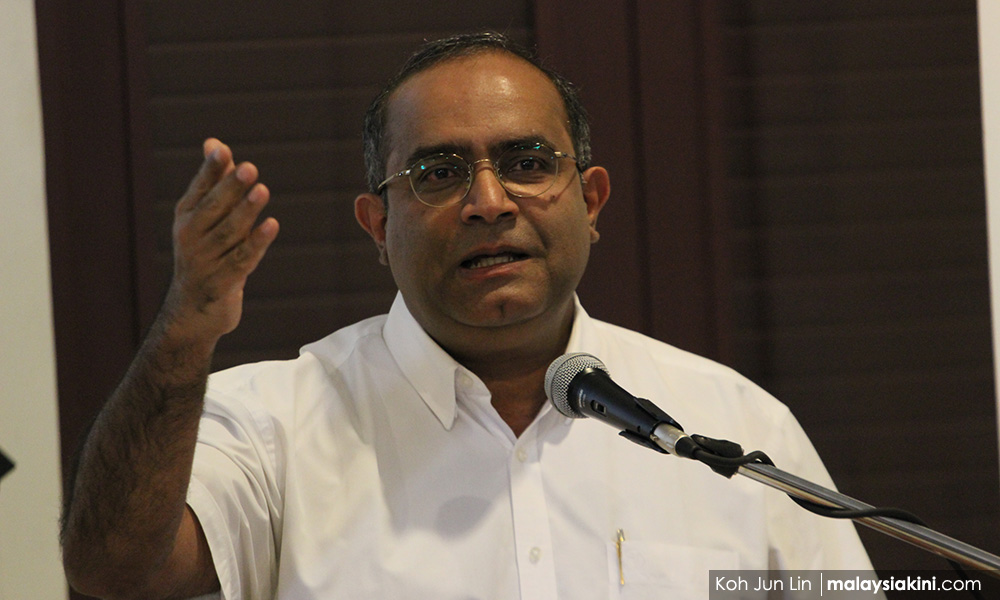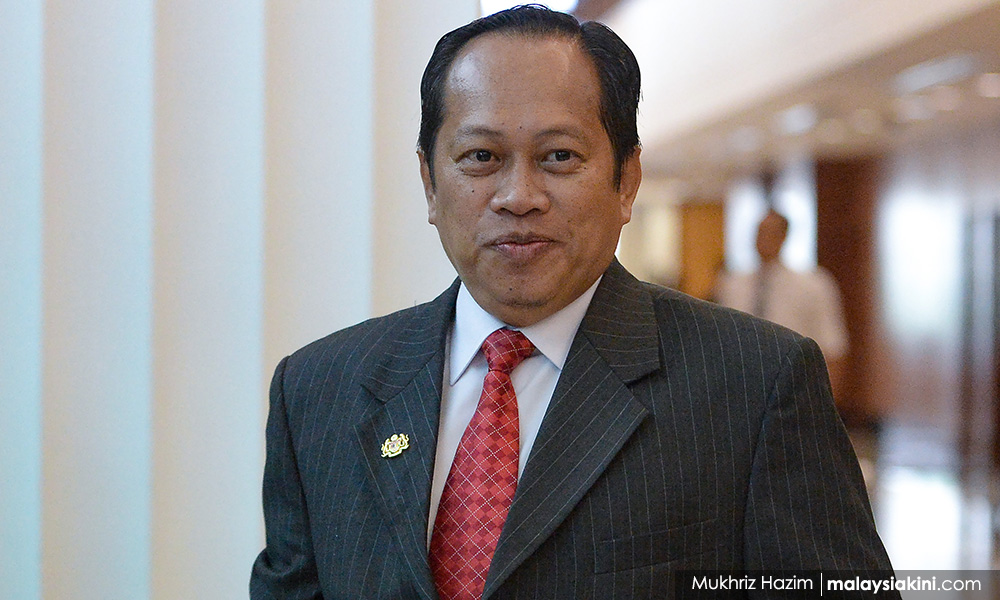Political finance reforms are important because, without such regulations, politics becomes a competition of money which will eventually drive the opposition to vie over identity politics as the “cheapest way” to compete, said academic Wong Chin Huat.
He said the public should have the same expectations of politicians as they do of any other professional occupations, as politicians should be able to compete on their ability to formulate policies and implement them.
However, even if political parties were to compete on ideas, money is still needed to develop the ideas and also to communicate them to the public, he acknowledged.
If the idea is not well-received by the public, then it is politically useless, no matter how good a policy it is, he added.
“If you only have one side, the government side who can compete on ideas, what will happen to the opposition?
“The opposition would have no patronage unless they control the states (so) they will then compete on identity because it is the cheapest way to compete,” Wong (above) said.
He was one of the panellists in a session titled ‘Transparency in Political Financing: A Tool Against Political Corruption’ under the joint conference organised by the Malaysian Bar and Institute for Democracy and Economic Affairs (Ideas) on political financing act, which took place in Kuala Lumpur today.
Politics as a competition of money will end up allowing the richest in the society to control how the society is run, Wong warned.
Not only that, if one side can win using money politics, without having to come up with good ideas or policies, it kills off the incentive for the other side to come up with ideas, he said.
“If we do not regulate competition on patronage, there is no point for people to go into competitions over policy ideas.
“What’s the point if an MP sits in, say, the Public Accounts Committee or one of the parliamentary select committees and they spend hours and days working on investigations, fact-finding, policy ideas, but then their voters ask, what does my MP do and why do I not see him or her in the constituency?
“That kills the incentive for (the MPs) to do more. So, when you complain about the MP, are you part of the reason why MPs are not doing their job?” Wong questioned.
Institutional reforms needed too
Meanwhile, fellow panellist and political economist Edmund Terence Gomez said a political financing act must be accompanied by institutional reforms or it could be open to abuse or used to suppress the opposition.

These concerns have been voiced by the DAP previously, which had said requiring transparency on political donations would deter people from contributing to the opposition, who may fear retribution.
Wong added that the three institutions that must be reformed in parallel with the political financing act are the Attorney-General’s Chambers, the MACC and the Inland Revenue Board.
Gomez said it is also dangerous that business people are now entering politics themselves as self-financed politicians.
He said this can lead to a “revolving door” issue, where the business people get into power, set policies into place and then leave as well as the issue of state capture, where private interests significantly influence the government’s decision-making process.
“It is a major phenomenon in America, debilitating the political system.
“In Malaysia, businesses have very little influence on the political system. The only way they can influence is to fund the politicians and the parties.
“So, what do they do now? They enter the political system, and then state capture so they can shift policies. The first person who started this was (former minister) Daim Zainuddin, that was in the 1980s but now it is the trend,” Gomez said.
Money politics in internal party elections has also hurt the country’s political landscape by shutting out young people from rising in politics, Gomez said.
It started with the Umno party elections but has since “spilt into the mainstream”, he noted.
“Money used in the Umno elections was stupendous. What it did was prevent young people from coming up and creating the warlords’ system.
“If the warlords control the party and young people are kept at the bottom, the same old people will stay in power, who happen to be very corrupt.
“This is why today we see so few young people in the political system, particularly in Umno,” Gomez said.
Most appropriate time for reforms
Bait Al-Amanah research director Benedict Weerasena, another panellist in the session, said he believes it is now the most appropriate time for political financing reforms due to several factors.
First, it is because there is no clear dominant political party right now, which paves the way for more bipartisan efforts.
Politicians are also more fearful of drawing the ire of voters by being seen as indulging in corruption through court cases.

“So now you have Pontian MP Ahmad Maslan saying we need the political financing act. He was part of the court cluster before this but now he’s saying we need this act to clear the names of the politicians who might have received political donations but didn’t use them for personal gains,” Benedict said.
The rise in young, educated voters has also created a window of opportunity for political financing reforms, he said.
Referring to Gomez’s point about how difficult it is for youths to rise in the hierarchy of many political parties, Benedict said now there is pushback on money politics in internal party elections.
“There is pushback from the youths because they’d see, ‘if I want a political career for myself, Umno is not the party to go for.’
“So Umno people are starting to sit up and realise ‘we cannot do this anymore or else you lose ground with young voters, especially considering that Undi18 is in place right now’,” he said.- Mkini




No comments:
Post a Comment
Note: Only a member of this blog may post a comment.